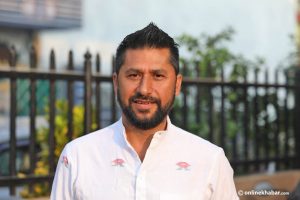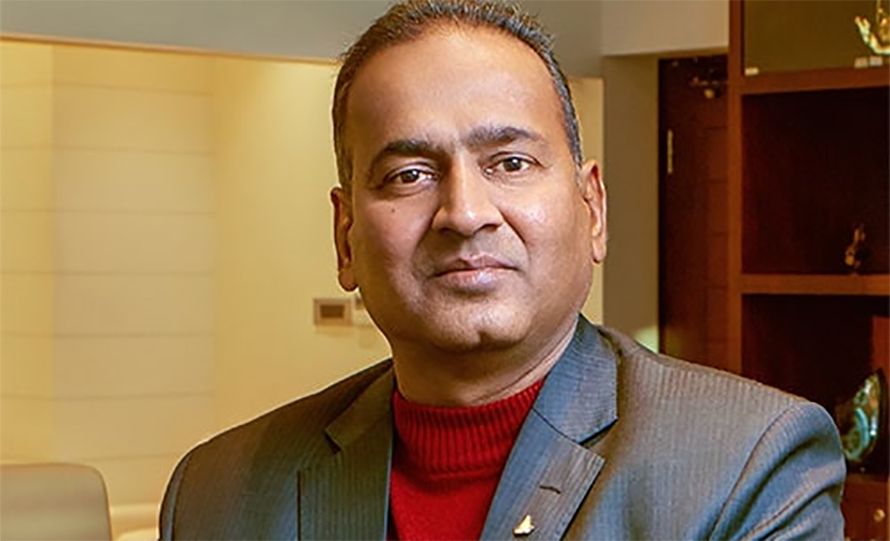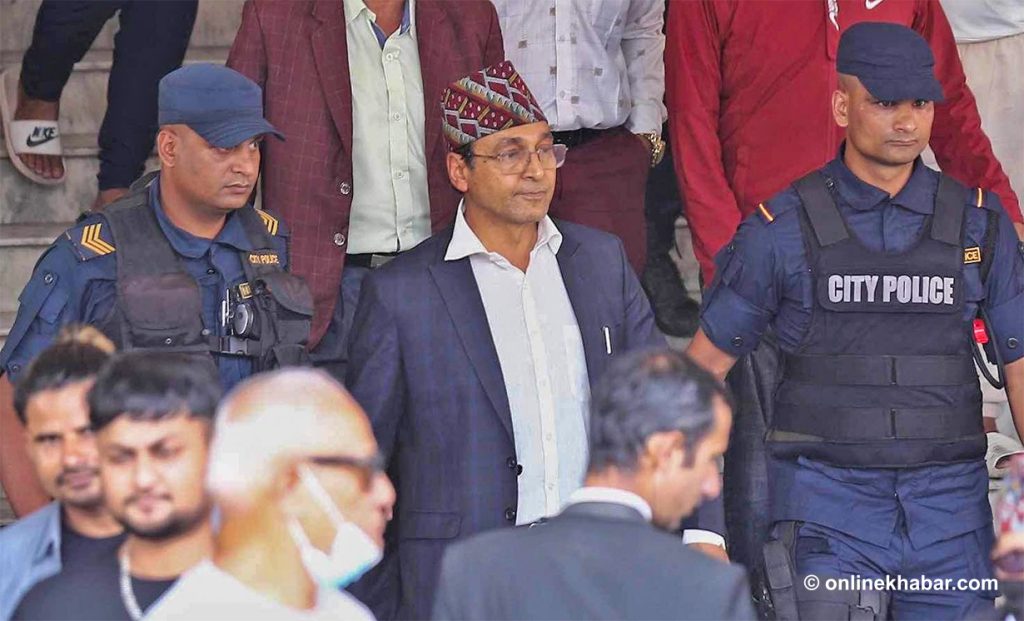
During the 2017 elections, Nepali Congress leader Bijay Kumar Gachhadar defeated CPN-UML candidate Bhagawati Chaudhary by 321 votes. But, the election results were disputed after Chaudhary filed a case at the Supreme Court.
Prior to the announcement of the election results, Chaudhary had filed a written complaint at the Election Commission stating that Gachhadar tried to rig the elections in his favour.
Her concerns were not addressed, after which she filed a writ petition at the Supreme Court stating the elections in her constituency should be considered void. But, the petition is still sub-judice at the apex court. Five years on, the two are once again competing against each other in the elections due to be held coming Sunday.
In the same year, the CPN-Maoist Centre’s Asha Koirala defeated Nepali Congress’ Pradeep Paudel by five votes in the Provincial Assembly elections for Tanahun 2(1). As soon as the election results were out, there was controversy as it was reported in one voting centre that 2,328 votes were dropped. But then, while counting, they found 2,370 votes. Poudel complained to the commission, but his efforts went in vain, after which he knocked on the doors of the Supreme Court. The case is still sub-judice like the earlier case.
A total of 15 similar cases related to the previous House of Representatives and Provincial Assembly election results reached the Supreme Court. Some went to the court stating the opposition captured booths while some claimed the election was rigged. Complaints were also made regarding errors in the polling, the polling officer not destroying voided ballot paper, and the election officers not following laws during the vote counting.
Candidates, both directly elected and through the proportional representation system, filed these complaints. But five years on, many of them are awaiting verdicts. Many have concluded they will not get it anytime soon. And, with the elections less than a week away, this is raising questions regarding the judiciary and its inability to give out case verdicts on time.
Justice delayed

Former Supreme Court justice Balaram KC says that the issue of speedy delivery of justice regarding disputes about the election results is in the roles of the judiciary.
“Justice is more than being independent; it should also be fast and accessible,” says KC. “Dispensing justice is one of the characteristics of an independent judiciary. Disputes related to election results affecting the state should have been resolved as soon as possible.”
Only five out of the 15 cases have been concluded. All five of the cases were of minor importance in nature. But, the Supreme Court has delayed the verdict process involving influential candidates and matters related to violation of serious laws.
Senior advocate Shree Hari Aryal says that there is a history of late resolution in cases related to election results in Nepal.
“This kind of problem has been common in the election dispute. Moreover, when Cholendra Shamsher Rana became the chief justice, it was natural that he would not try to settle cases that would trouble influential politicians,” says Aryal. “If this had been his priority, it would have been solved. Haven’t other cases been resolved?”
Proportional representational candidates also filed cases at the Supreme Court complaining they were unfairly treated for various reasons. The proportional candidates approached the Supreme Court for legal remedies with complaints that they were not selected, people with lower priority than them were elected, and they were discriminated against during the selection of names. The Supreme Court did not resolve even those disputes during this period.
Selective justice
It is not that the Supreme Court has not concluded cases related to disputes over election results. It seems the court has settled the disputes when it knows that the petitioner has no chance to win or the case does not have strong arguments.
Ram Singh Yadav, the candidate of the Maoist Centre in Dhanusha-3, also filed a case at the Supreme Court. He had mentioned two television channels as the defendants. He claimed that he lost the election after the TV channels mentioned that the chair of Rastriya Janata Party, Rajendra Mahato, supported someone else in the election and demanded re-election.
But, claiming that his demands were unreasonable, the Supreme Court dismissed the case.
“There is no factual basis for the plaintiff getting fewer votes based on news that was aired during the silence period,” says the court’s verdict.
The Supreme Court easily rejected the claim of the candidate who did not get even 10 per cent of the votes compared to the elected candidate.
A breach of the constitution

According to Nepal’s constitution, only the constitutional bench of the Supreme Court should resolve disputes about election results at the provincial and federal levels. Based on that, the disputes related to the election results were submitted to the constitutional bench. It is shocking that these petitions submitted around December 2017 have still not been resolved to date.
Supreme Court officials do not want to comment on the delay in concluding the election disputes. Informally, one tells Onlinekhabar the hearing could not be held on time due to various reasons.
One reason they give is the Covid pandemic that continued for two years. Another reason they cite is the suspension of Chief Justice Cholendra Shamsher Rana following the registration of an impeachment motion against him. But, during this time, the constitutional bench was doing its job as far as other disputes were concerned. The court did nothing in 2018 and 2019 about disputes over the election results.
Elections are the basic foundations of democracy. The theory that the constitutional bench within the Supreme Court of the country should resolve the dispute related to election results has now become a joke. According to senior advocate Aryal, if the election result disputes, considered sensitive, are not resolved on time, the message is conveyed to the people that the constitutional bodies are helpless.
Aryal says the Parliament is the place where the representatives exercise their sovereignty by taking the votes of the people. If there is a dispute about who will represent the people, it should be resolved immediately.
“These disputes should be resolved in six to eight months or a maximum of a year,” says Aryal. ” It’s embarrassing right now because these candidates who feel cheated have nowhere to go.”
This story was translated from the original Nepali version and edited for clarity and length.


























